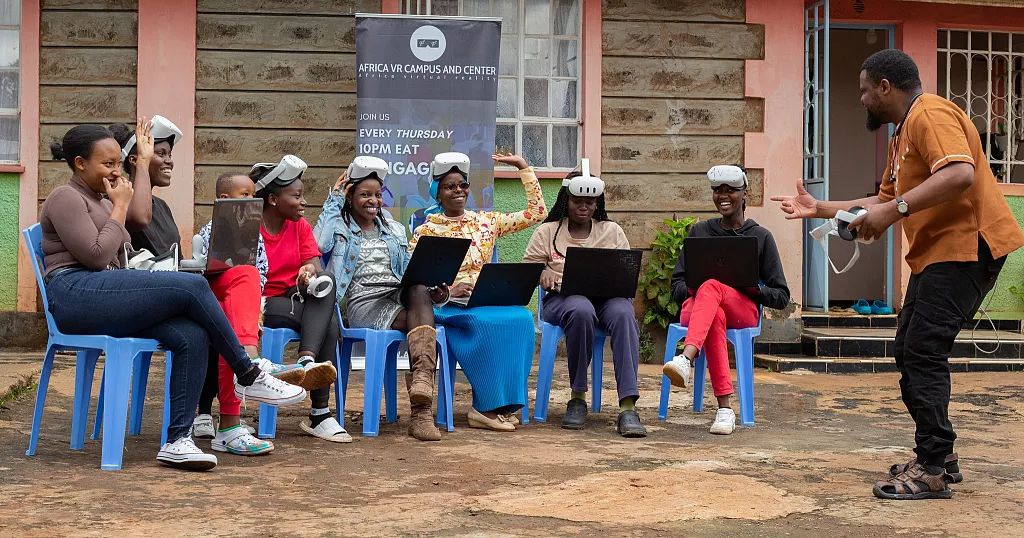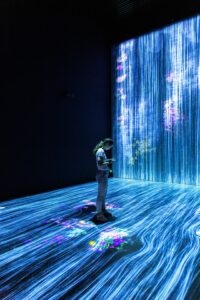Kenyan organization introduces rural communities to the wonders of the metaverse

A Kenya-based initiative, Africa VR Campus and Center, is introducing members of remote communities to the emerging world of the metaverse, aiming to bridge the digital divide and create economic opportunities. The program, led by founder and former teacher Paul Simon Waiyaki Wa Hinga, focuses on using virtual reality (VR) technology to empower individuals in underserved regions.
In Kiambu, a rural area north of Nairobi, a group of young people is experiencing VR for the first time. Equipped with headsets, they are transported to new and unfamiliar worlds — a far cry from their everyday surroundings.
“The reason we do this is for socioeconomic empowerment,” said Waiyaki. “These communities have their own stories to tell in the metaverse, and they also have grassroots industries that can be integrated into the virtual space. This brings them economic growth and financial wellness.”
Waiyaki started his mission after recognizing that many Kenyan villages lacked awareness of VR technology. He began touring rural areas, hosting hands-on sessions to introduce people to its possibilities. His organization claims to have held Africa’s first weekly metaverse events, starting in 2019.
A three-day training session in a village hall in Kiambu has drawn the attention of young residents eager to learn about the new technology. For many, it’s their first experience with VR.
“This is my first time seeing a VR headset,” said Virginia, a participant in the program. “I’m amazed by the opportunities it presents. I can travel to other countries without leaving Africa, and it feels like I’m seeing space and all the stars.”
Participants who show a strong interest are invited to continue learning and eventually gain the skills needed to earn an income through VR-related work. One such participant is Margeret Wanjiru, who joined the program in 2021. She said the experience has not only boosted her self-esteem but also given her the chance to teach others.
“I feel like this program has benefited me a lot,” said Wanjiru. “We’ve even gone to universities to teach students how to use VR. I didn’t go to university myself, but now I feel special and important.”
While the project has seen success, challenges remain. Infrastructure limitations, unreliable internet access, and skepticism about new technologies often hinder efforts to hold VR training sessions in some areas. Nonetheless, Kenya, known as the “Silicon Savannah,” continues to lead Africa’s tech innovation scene.
Brian Afande, founder and CEO of Blackrhino VR, praised Waiyaki’s efforts but emphasized the need for broader strategies. “Taking this technology to underserved communities is a great first step,” Afande said. “But it needs to be accompanied by training that goes beyond just consuming content. People need to learn how to create it as well.”
Afande noted that for young people in rural areas, the key to unlocking VR’s potential lies in equipping them with the tools to develop the technology themselves. “This technology can change lives in many ways, but it’s important to give young people at the grassroots level the skills to build it,” he added.
Africa VR Campus and Center continues to spread awareness of VR across Kenya, working to foster innovation and close the technology gap in remote areas. While obstacles remain, the program has offered many participants a glimpse of new possibilities and the hope for a better future through the metaverse.
Source link
#Kenyan #organization #rural #communities #glimpse #wonders #metaverse






